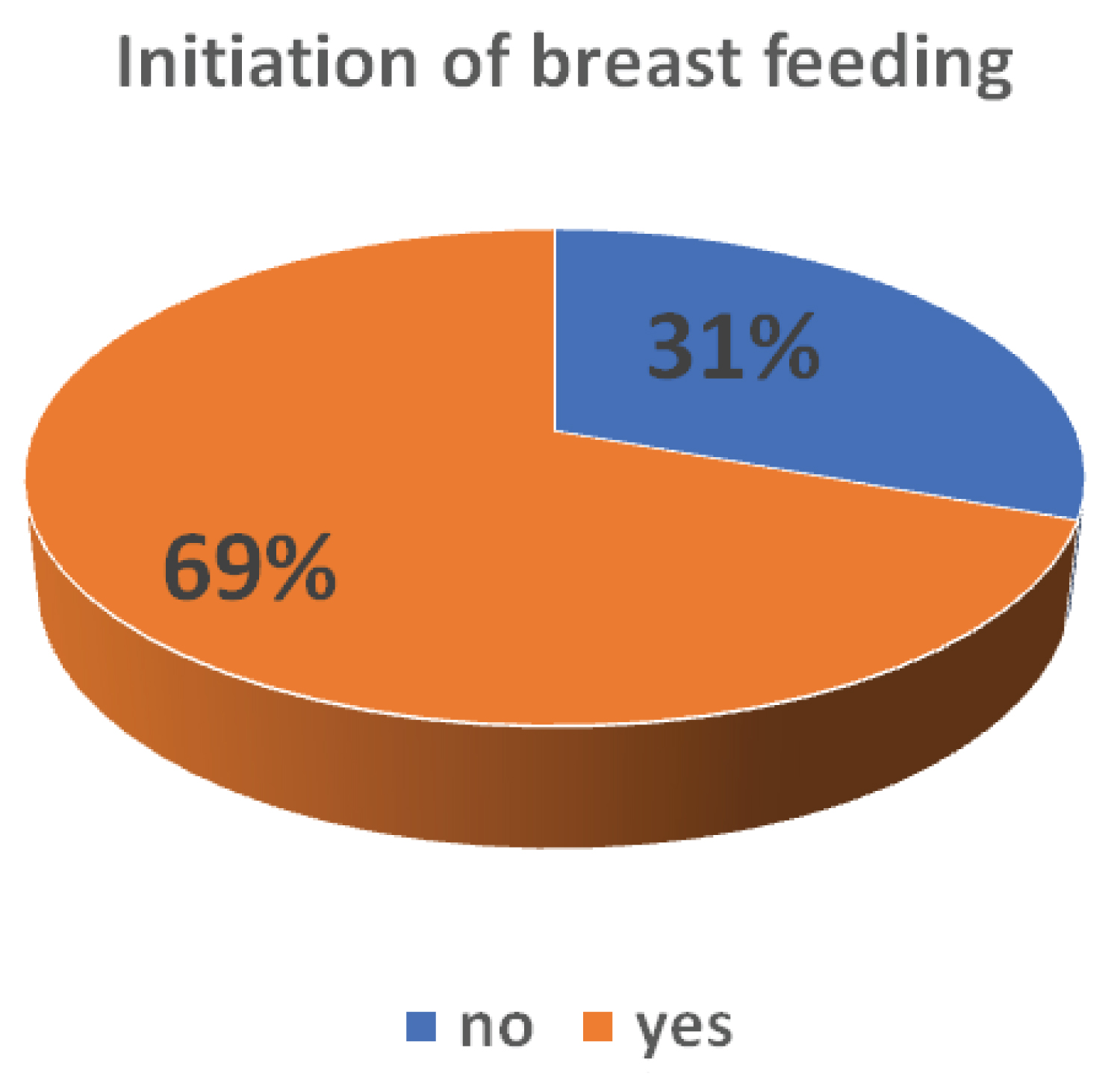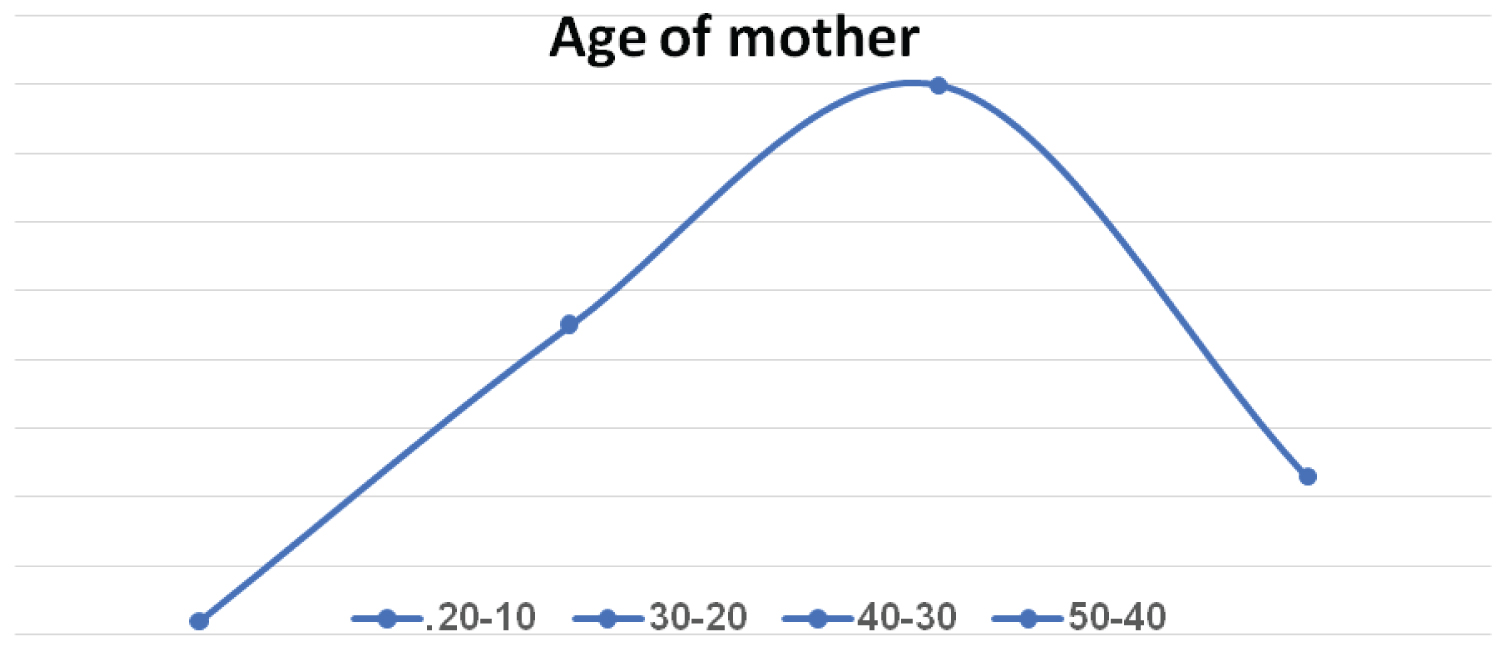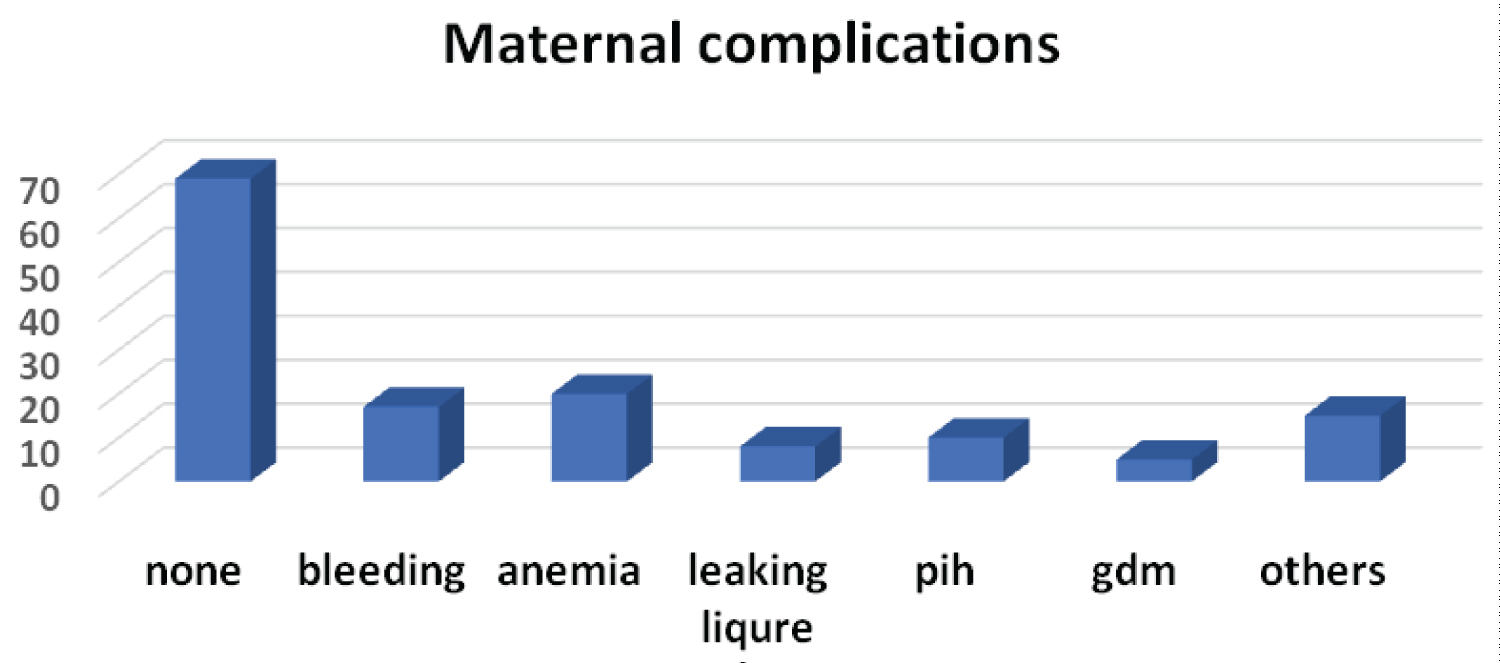Breastfeeding is the ideal and most natural way of nurturing infants. Mother's milk is the most complete food in the first months of life. According to the American Association of Pediatrics (AAP) guidelines, mother's milk must be started immediately after delivery and it must be considered as the only food of baby in the first six months of life and then it should be preserved one year as one of the main components in the diet of a child.
To assess the factors affecting the initiation of breast-feeding.
A cross-sectional study conducted from February to May 2018 in the Department of Obstetrics and Gynecology at AlY armouk teaching Hospital in Baghdad. Convenient sample of women delivering live babies irrespective to mode of delivery. The study done by using a preformed questionnaire composing of three domains.
About 150 women were included in the study, with age range 15-42 years, 55% had primary education. In addition, 95% are not employed. All the women had the will to breast-feed their neonate. Seventy percent did initiate breast-feeding. Preterm delivery occurred in 12.6% and it was significantly associated with initiation of breast-feeding. Cesarean section occurred in 78% of sample.
Only 70% of women initiated breast-feeding. Neonatal complications and preterm baby have significant role in the delay of the initiation of breastfeeding.
Breast-feeding, Initiation, Affecting factors
Breast-feeding considered the best way to supply an infant with not only nutritional requirements in optimum quantity and quality but also better immunity through its content of immune factors.
Besides, breast feeding helps child's physical as well as psychological development, such fact enforced the public health organizations to increase both frequency and duration of breast-feeding. Many countries in the WHO Eastern Mediterranean Region report high rates (> 60%) of early initiation of breastfeeding of infants and more than 60% of infants continue to be breastfed at one year. However, rates of exclusive breast feeding seem to have declined, with only 40% or less of infants under six months in countries of the Region being exclusively breastfed [1].
Many diseases linked to not breast feeding infants as otitis media, gastroenteritis, and pneumonia, which also increased mortality among non-breast, fed infants. It also put them at future risk of diabetes type 2, leukemia and SIDS. In addition premature infants were at increased risk of necrotizing enterocolitis. According to epidemiologists, risks of not breast feeding newborn also had extended to mothers in which they will be at more risk for malignancies of ovary and breast, if not they are at risk for obesity and complications as diabetes type 2, cardiovascular diseases and metabolic syndrome [2].
It have been noticed the breast feeding benefits varies according to countries being developing or developed ranging from a reduction in mortality and morbidity in infants to protection from juvenile diabetes, eczema and SIDS respectively. Despite this fact, 60% of women only are nursing up to 1 year 40% of them are exclusive breast feeders in developing countries [1,3].
The initiation of breastfeeding within one hour of birth will maximize advantages and according to researchers starting breast feeding at such early phase will help exclusive breast feeding to continue for six months, and even continue for 2 years side by side with additional food [4,5]. Culture may have a negative influence on initiation of breast-feeding as seen in Africa, which explains the higher rates of neonatal morbidity and mortality in these countries [6].
To assess factors associated with initiation of breast-feeding.
Cross-sectional study with analytic base conducted in obstetrics and gynecology department in Al Yarmouk teaching hospital (baby friendly hospital) in Baghdad from February to May 2018, convenient sample of women delivered in the hospital regardless mode of delivery were included in the study. Data collection done by direct interview using a preformed questionnaire composing of three domains:
First domain is the demographic data: Age, education of woman and husband, woman occupation, family type and residence.
Second domain past obstetrical history: Parity, spacing and infertility history.
Third domain current pregnancy history: Mode of delivery, gestational age, sex and weight of newborn, complication of mother and neonate.
Then the will to breast feed and the actual initiation of breast-feeding. The consent of women to participate sought prior to questioning. After approval, the interview done privately, which took about 10 minutes. Data entry was done using Microsoft excel 10, percentages were calculated graphs were drawn association was calculated using chi square test which was set at p value less than 0.05 to be significant.
According to Geneva report in 2015, "The rate of early initiation of breastfeeding passed from 25.1% in 2006 to 43% in 2011. While representing a significant increase, this rate remains largely insufficient to ensure a good start in life for all Iraqi babies. Indeed, this means that almost 6 children out 10 are not receiving any breast milk during their first hour of life, even though delayed breastfeeding is proven to have a negative impact on neonatal mortality" [7].
Upon studying the Iraqi governorates in 2018, bottle-feeding have increased on the expense of breast-feeding over the past decade [8].
Although all of the 150 women aged (15-45), years in our sample had the intention to breast-feed their infants. 69% did initiate breast-feeding (Figure 1). Almost double the percentage of Turkey revealing a 37 percent initial breast-feeding in 1st half hour [9].
 Figure 1: 69% of women initiated breast-feeding.
View Figure 1
Figure 1: 69% of women initiated breast-feeding.
View Figure 1
Age has no significant association with their initiation Figure 2. A recent review of 15 studies examining breast- feeding in Saudi Arabia summarized that, in terms of the effects of maternal age on breastfeeding, only eight of the studies found a significant association as the breastfeeding initiation rate was higher and breastfeeding was, on average, done for longer by older mothers. Elsewhere, no significant relationship found between the age of the mother and their breastfeeding practice by a study in Kuwait or by a study in the United Arab Emirates. In another systematic review of 18 research studies from Asia, Africa and South America each of which aimed to identify independent risk factors preventing breast- feeding within the first hour of life [10-12]. Place of residence in which 68% of women lived in urban area.
 Figure 2: The sample included 150 women in age range 15-42 yrs.
View Figure 2
Figure 2: The sample included 150 women in age range 15-42 yrs.
View Figure 2
Factors that lack significant associations include type of family, which shows almost fifty-fifty distribution for both nuclear versus extended families. Increased Level of education of mothers linked to successful initiation of breast-feeding in several surveys done in Nepal in contrary to our study that showed no association Table 1 [13].
Table 1: Distribution of studied women according to breast feeding initiation and sociodemographic characteristics. View Table 1
Women empowerment linked with early initiation of breast-feeding in south East Asia systematic literature review; our study lacks such association despite the 95% of housewifery [14].
Infertility history has negative influence on early initiation of breast-feeding in French women, this was not seen in our Iraqi women Table 2 [15]. Parity was not associated with breast feeding. While parity elongates breast feeding duration in a study in brazil [16] although many studies showed significant association between mode of delivery and initiation of breast-feeding even delivery by cesarean section shortens the duration of breast-feeding, our results were non-significant, probably because our hospital is a baby friendly one Table 2 [17].
Table 2: Distribution of studied women according to breast feeding initiation and obstetric history. View Table 2
The Influence of Mode of Delivery on Breastfeeding Initiation in Women with a Prior Cesarean Delivery: A Population-Based Study'' they found that patients who elect a scheduled repeat cesarean delivery are less likely to initiate breastfeeding compared with those who choose a trial of labor after cesarean section. In addition, they found that even those individuals who choose a trial of labor after cesarean section and fail their VBAC attempt, and ultimately undergo repeat cesarean section, are more likely to initiate breastfeeding than those with a scheduled repeat cesarean section. These differences remain significant even after adjustment for other sociodemographic and medical factors that influence breastfeeding initiation [18].
This is consistent with previous studies in Saudi Arabia, which identified caesarean section as a risk factor for breastfeeding initiation. For instance, Albokhary and James examined a sample from the western region of Saudi Arabia and found that mothers who had given birth vaginally had a greater likelihood of starting breastfeeding within 24 h, while caesarean section babies were more likely to be formula fed [18-20]. This negative association of caesarean delivery with breast-feeding initiation has reported in a study of Kuwaiti mothers [8] and by a systematic review of worldwide studies, which found that 11 out of 14 studies supported the association. Two possibilities proposed for this negative association: That the effects of anesthesia delay lactation, and/or post-surgical pain [12].
Presence of newborn complication and being preterm were of significant association, while neither birth weight, spacing nor sex of the newborn had significant association Table 2. Maternal complications (Figure 3) regardless the type have significant association with breast-feeding initiation Table 2.
 Figure 3: Maternal complications.
View Figure 3
Figure 3: Maternal complications.
View Figure 3
One study previously published in Saudi Arabia has examined gestational age and infant birth weight as possible influencing factors, and found them to be potentially detrimental to breastfeeding initiation [21]. According to a certain study in 1995 about Anemia and insufficient milk in first-time mothers in the national center for biotechnology information organization they found that anemia is associated with the development of insufficient milk which affects breastfeeding [22].
On the other hand bleeding which could affect on the breastfeeding initiation, other research done in Australia in 2010 about "Women's breastfeeding experiences following a significant primary postpartum hemorrhage: A multicenter cohort study" suggested that Following a significant PPH, women with greater blood loss are less likely to initiate and sustain full breastfeeding and this may be related, in part, to delays in initial contact with their baby as a consequence of the PPH [23].
While pregnancy induced hypertension, two Japanese scientists in 2012 did a research about 'Influence of breastfeeding on maternal blood pressure at one month postpartum' and found that breastfeeding can decrease SBP, which is quite beneficial for the mother and therefore, its highly recommended [24].
Gestational diabetes mellitus and according to studies in 2017 published in "a journal of pregnancy" about "Breastfeeding after Gestational Diabetes" they found that GDM can affect breast-feeding practices. Specifically, a review study investigating Type 2 diabetes and GDM stated that women with GDM have higher rates of pregnancy and neonatal complications that can create barriers to breastfeeding [25].
Three quarters of sample initiated breast-feeding baby and maternal complications play the major role in delaying initiation of breast-feeding.